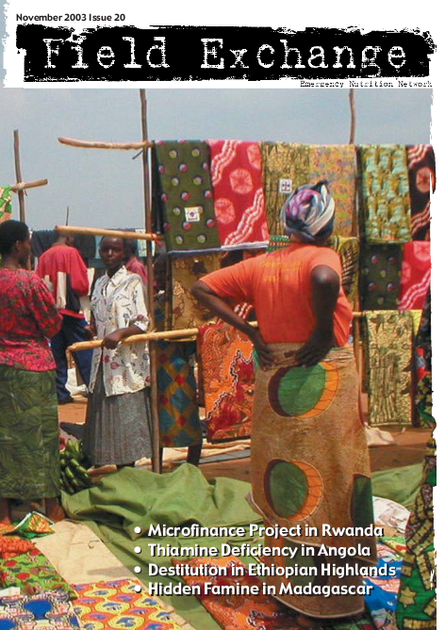
Readers of Field Exchange will also be aware of the lack of unanimous guidance on supporting safe infant feeding strategies in emergency affected areas, where bottle and mixed feeding is common. This situation may partly reflect the blind adherence to 'dogma' and the fear that recommending anything other than breastfeeding will open the flood gates for the formula industry who will then go on to win 'the battle against the breast'. The assessment findings on infant feeding in Iraq (page 6) highlight how, for political reasons, formula milk is part of the general ration distribution. Though this contravenes best practice and negatively influences the prevalence of breastfeeding, there is a lack of clear practical guidance on appropriate interventions in such a context.
The experience contrasts with recent findings from Uganda (page 15), where HIVpositive mothers whom, after counselling, chose to use formula were not able to access the commodity. Both situations leave a lot to be desired if safe and appropriate infant feeding is to be achieved. Some agencies and institutions are working on this issue but more research is required. I commend the interagency 'core group on infant feeding in emergencies' for their strident efforts to develop practical guidance for field practice in this area.
In the absence of conclusive research, the sharing of programmatic experience is vital. Field workers need to 'keep it real', write in and describe the actual problems which are being encountered and the measures taken to overcome these, so that appropriate guidance can follow. Technical experts need to be open to debate and allow field experience to influence guidance and policy. They need to be pragmatic and develop guidelines for situations which actually occur e.g. where breastfeeding is not an option. More than anything, child well being should be the focus of efforts to improve practice.
